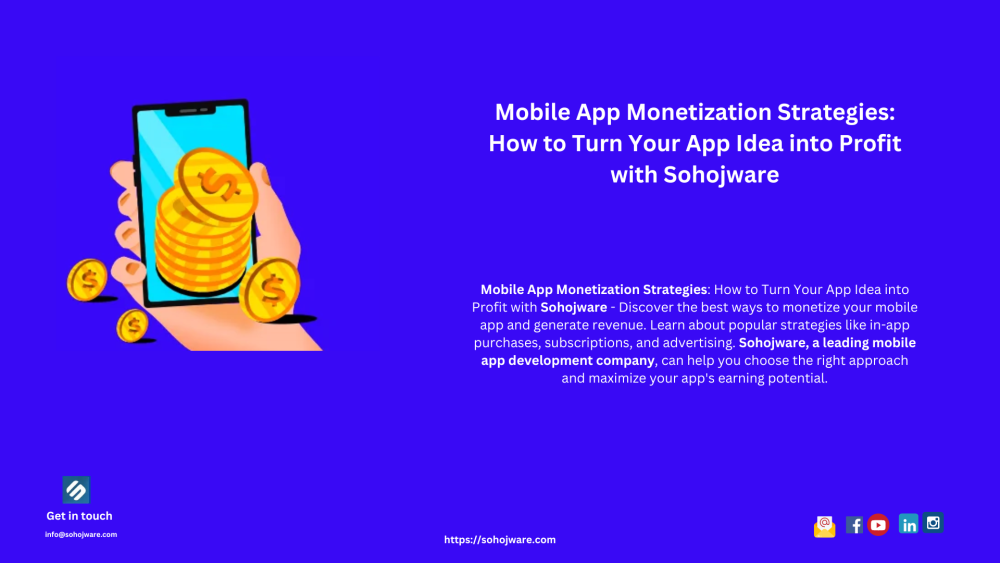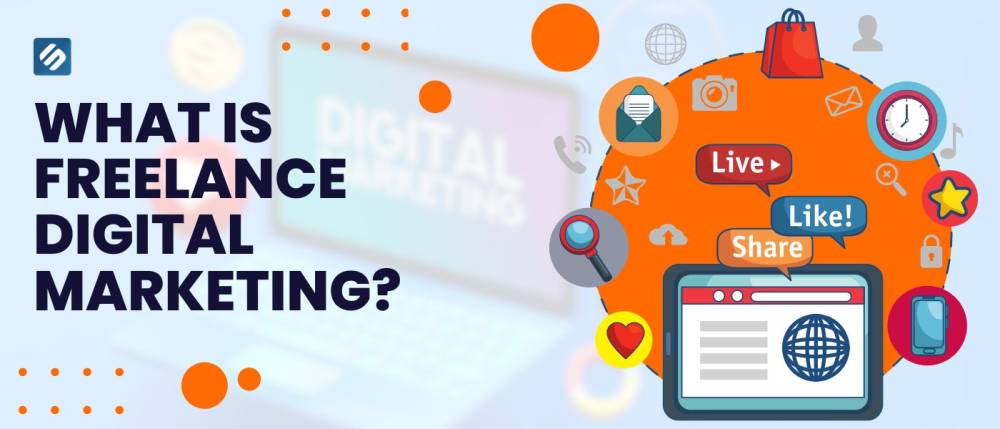In today's digital age, having a strong online presence is essential for the success of any small business. However, navigating the complex world of digital marketing can be challenging, especially if you lack the necessary expertise.
This is where a digital marketing agency can help. By leveraging their knowledge and skills, these agencies can create effective marketing strategies to help your small business thrive in the online landscape. But with so many agencies out there, how do you choose the right one?
In this article, we will guide you through the process of selecting the perfect digital marketing agency for your small business.
Table of Contents
- Introduction
- The Importance of Digital Marketing for Small Businesses
- Assess Your Business Needs
- Define Your Goals
- Evaluate Agency Expertise and Services
- Consider Industry Experience
- Review Case Studies and Portfolio
- Check Online Reviews and Testimonials
- Evaluate Communication and Collaboration
- Understand Pricing and Budget
- Assess Reporting and Analytics
- Checking for Transparency and Ethical Practices
- Seek Recommendations and Referrals
- Schedule Consultations
- Analyzing Their Industry Knowledge and Trends
- Trust Your Gut Feeling
- Make an Informed Decision
- Conclusion
- FAQs
1. Introduction
In this digital era, choosing the right digital marketing agency is crucial for the growth and success of your small business. A reputable agency can help you navigate the complexities of the online world and implement effective strategies to drive traffic, increase brand visibility, and boost conversions.
However, with numerous agencies vying for your attention, it's essential to follow a systematic approach to make an informed decision.
2. The Importance of Digital Marketing for Small Businesses
In today's highly competitive market, having a strong digital marketing strategy is essential for small businesses to reach their target audience and stand out from the crowd. Digital marketing encompasses various tactics, including search engine optimization (SEO), social media marketing, content marketing, email marketing, and more.
By leveraging these strategies effectively, a small business can significantly increase its online visibility, generate leads, and drive conversions.
3. Assess Your Business Needs
Before embarking on the search for a digital marketing agency, it's crucial to assess your business needs. Determine what specific services you require, whether it's website design and development, search engine optimization (SEO), social media marketing, content creation, or paid advertising.
Understanding your needs will enable you to find an agency that specializes in the areas most relevant to your business.
4. Define Your Goals
Once you've assessed your needs, it's time to define your goals. What do you want to achieve through digital marketing? Is it increased website traffic, higher conversion rates, improved brand awareness, or all of the above?
By clearly defining your goals, you can find an agency that aligns with your objectives and has a track record of delivering results in those areas.
5. Evaluate Agency Expertise and Services
When selecting a digital marketing agency, it's essential to evaluate their expertise and range of services. Look for agencies that have a diverse team of professionals with expertise in various digital marketing disciplines.
A comprehensive service offering ensures that you can access all the necessary strategies and tactics under one roof, simplifying the management of your marketing efforts.
6. Consider Industry Experience
Industry experience plays a crucial role in the success of your digital marketing campaigns. Look for agencies that have worked with businesses similar to yours or within your industry. Such agencies are likely to have a better understanding of your target audience, competitors, and industry-specific challenges.
Their experience can translate into more effective marketing strategies tailored to your specific needs.
7. Review Case Studies and Portfolio
A reputable digital marketing agency should be able to provide you with case studies and a portfolio of their past work. Take the time to review these materials, paying attention to the results they have achieved for their clients.
Look for agencies that have demonstrated success in driving measurable results, such as increased website traffic, higher search engine rankings, or improved conversion rates.
8. Check Online Reviews and Testimonials
In the digital age, online reviews and testimonials are powerful indicators of an agency's reputation and the quality of their services. Search for reviews and testimonials from past and current clients to gauge their satisfaction levels.
Additionally, consider reaching out to businesses in your network that have worked with the agencies you are considering and ask for their feedback.
9. Evaluate Communication and Collaboration
Effective communication and collaboration are vital when working with a digital marketing agency. During your interactions with potential agencies, assess their communication style, responsiveness, and willingness to understand your business goals.
A good agency will actively listen to your needs, provide regular updates, and foster a collaborative relationship that ensures your objectives are met.
10. Understand Pricing and Budget
Digital marketing agencies employ various pricing models, including retainer-based fees, project-based fees, or performance-based fees. It's crucial to understand their pricing structure and ensure it aligns with your budget.
Remember that while price is an important consideration, it should not be the sole determining factor. Focus on the value the agency can provide rather than the lowest cost.
11. Assess Reporting and Analytics
Data-driven decision-making is at the core of successful digital marketing campaigns. Therefore, it's essential to assess the agency's reporting and analytics capabilities. Find out how they measure and track key performance indicators (KPIs) and whether they provide regular reports that offer insights into campaign performance.
Transparent reporting ensures that you can monitor the effectiveness of your marketing efforts and make informed adjustments when necessary.
12. Checking for Transparency and Ethical Practices
Transparency and ethical practices are paramount in the digital marketing industry. Ensure the agency follows ethical guidelines and adheres to industry standards. Inquire about their data handling practices, privacy policies, and compliance with relevant regulations to safeguard your business's reputation and customer trust.
13. Seek Recommendations and Referrals
Don't hesitate to seek recommendations and referrals from trusted sources such as business associates, industry experts, or professional networks. Their insights and experiences can provide valuable guidance in choosing the right digital marketing agency for your small business. Take into account their recommendations alongside your own research and evaluations.
14. Analyzing Their Industry Knowledge and Trends
The digital marketing landscape is constantly evolving, with new trends and technologies emerging regularly. A reliable agency will stay up to date with the latest industry developments, ensuring they provide you with the most effective strategies and tactics. Assess their knowledge and expertise in adapting to industry trends.
15. Schedule Consultations
Once you have narrowed down your options, schedule consultations with the shortlisted agencies. Use this opportunity to ask questions, discuss your goals and expectations, and gauge their understanding of your business. A face-to-face or virtual meeting can provide valuable insights into their approach, culture, and the chemistry between your teams.
16. Trust Your Gut Feeling
While it's crucial to evaluate agencies based on objective criteria, it's equally important to trust your gut feeling. Pay attention to how you feel during your interactions with agency representatives. Do they inspire confidence? Are they passionate about their work? Trusting your intuition can help you choose an agency with whom you can establish a long-term, successful partnership.
17. Make an Informed Decision
Armed with all the information gathered during your research and consultations, it's time to make an informed decision. Compare the strengths and weaknesses of each agency, taking into account their expertise, experience, reputation, communication, and overall fit with your business. Select the agency that best aligns with your goals, values, and budget.
18. Conclusion
Choosing the right digital marketing agency is a critical step in the growth and success of your small business. By following a systematic approach, assessing your needs, and thoroughly evaluating the available options, you can find an agency that can propel your online presence to new heights.
Remember to prioritize expertise, industry experience, communication, and alignment with your goals. With the right agency by your side, you can navigate the digital landscape with confidence and achieve your business objectives.
FAQs
1. How much does a digital marketing agency cost?
The cost of hiring a digital marketing agency varies depending on factors such as the scope of services, agency reputation, and your specific business needs. It's best to discuss pricing and budget during consultations with the agencies you are considering.
2. How long does it take to see results from digital marketing efforts?
The time it takes to see results from digital marketing efforts can vary depending on several factors, including the competitiveness of your industry, the complexity of your campaigns, and the strategies implemented.
Generally, it's advisable to have realistic expectations and allow for a few months to gauge the effectiveness of your digital marketing initiatives.
3. Can a digital marketing agency help with social media marketing?
Yes, many digital marketing agencies specialize in social media marketing. They can create and execute social media strategies to help you reach your target audience, build brand awareness, and drive engagement and conversions on platforms such as Facebook, Instagram, Twitter, LinkedIn, and more.
4. How do I measure the success of my digital marketing campaigns?
The success of your digital marketing campaigns can be measured through various metrics, including website traffic, search engine rankings, click-through rates, conversion rates, engagement on social media, and return on investment (ROI).
Working with a digital marketing agency that provides comprehensive reporting and analytics can help you track and evaluate these metrics effectively.
5. What should I look for in a digital marketing agency's portfolio?
When reviewing a digital marketing agency's portfolio, look for examples of their work in your industry or related industries. Pay attention to the quality of their designs, the effectiveness of their campaigns, and the measurable results they have achieved for their clients.
6. Can I switch to a different digital marketing agency if I'm not satisfied?
Yes, you can switch to a different digital marketing agency if you are not satisfied with the results or the quality of services provided. However, it's advisable to carefully review the terms and conditions of your agreement with the current agency and ensure a smooth transition to the new agency to avoid any disruptions in your marketing efforts.




